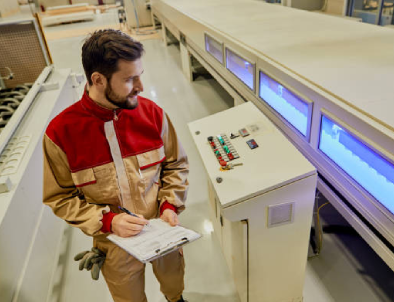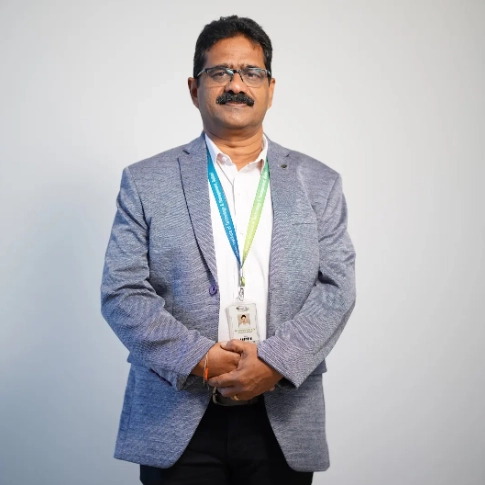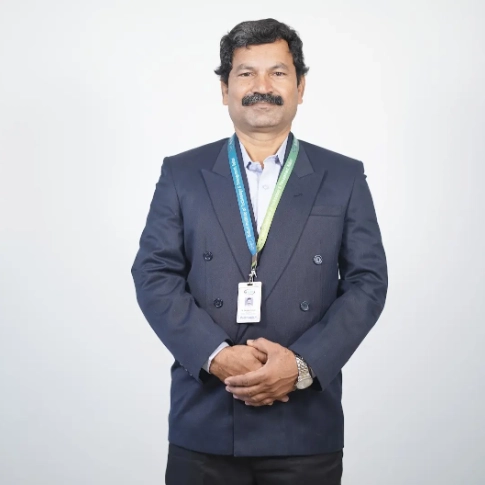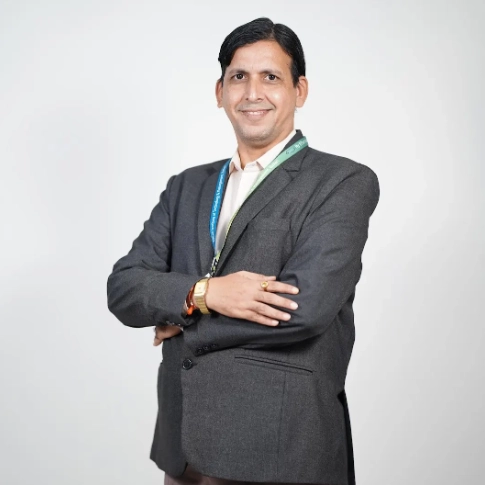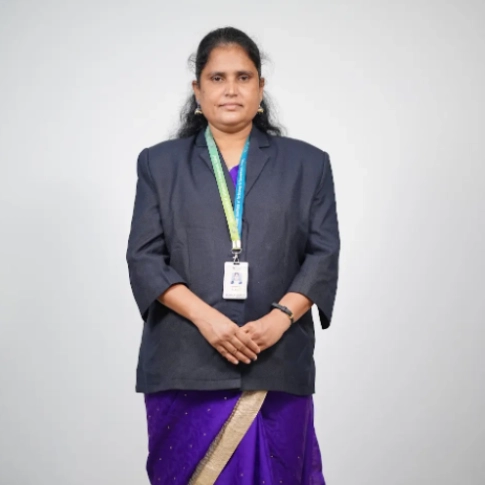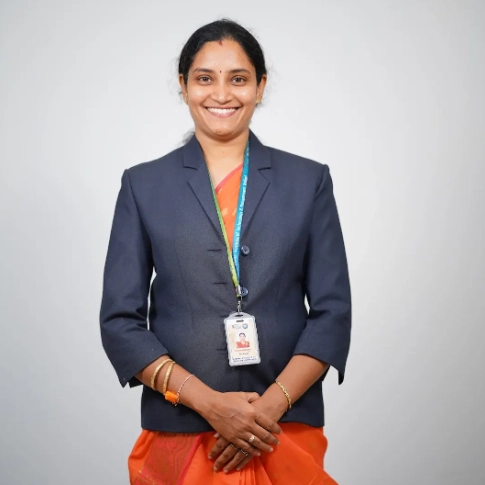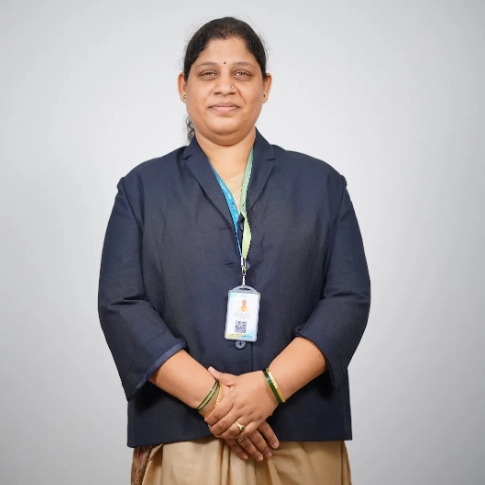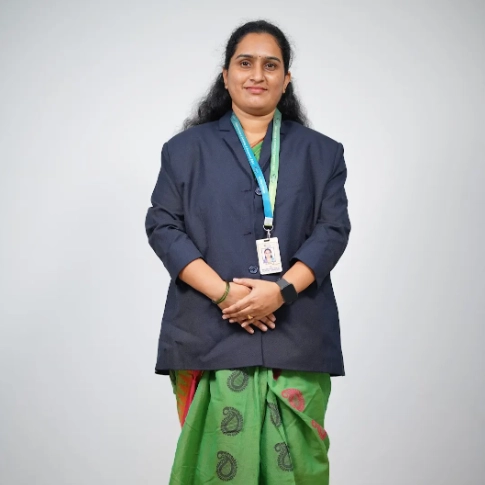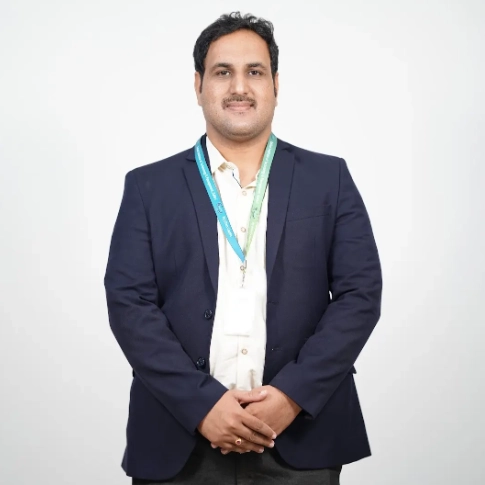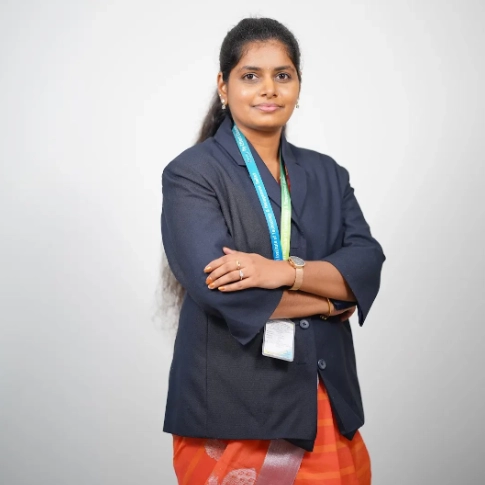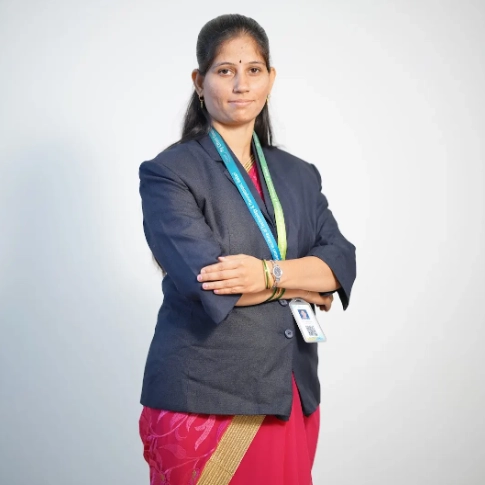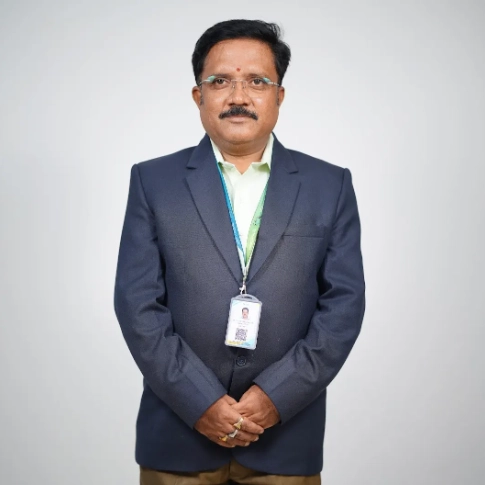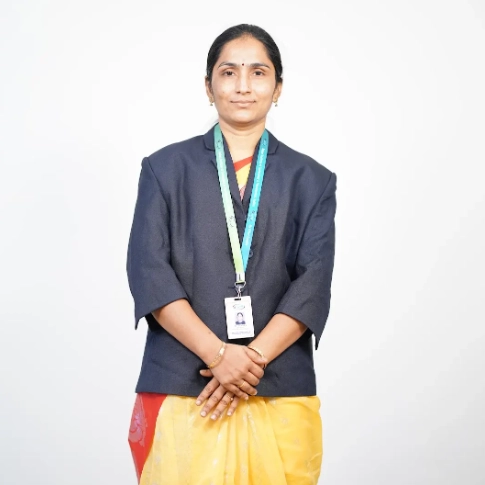Programme Level
Under Graduate
Duration
4 Years
Eligibility Criteria
Students who have passed Karnataka 2nd PUC/ 12th Std, / 10+2 / Intermediate or equivalent exam with Physics & Mathematics along with Chemistry/ Computer Science / Biology and any other optional subject with English as one of the languages of study and should have obtained a minimum of 45% marks. For SC/ST & other backward classes of Karnataka students only, the minimum marks is 40% in aggregate in the optional subjects in the qualifying examination, irrespective of marks obtained in the Common Entrance Test / COMED-K/ AIEEE.(Eligibility as per the Govt. Norms from time to time.)
Career Options
ECE or Electronics and Communication Engineers play a pivotal role in designing and developing the systems that power our modern world in the various job roles.
Program Fees
Duration
4 Years
Program
Electronics and Communication Engineering
Type
- SNQ
- CET
- COMED-K
- Management
Amount
- Rs. 46,360/-
- Rs. 1,22,495/-
- Rs. 3,070,87/-
- Rs. 2,65,000/-
Admission Process
Students who have passed Karnataka 2nd PUC / 12th std / 10+2 / Intermediate or equivalent exam with Physics & Mathematics along with Chemistry / Computer Science / Biology and any other optional subject with English as one of the languages of study and should have obtained a minimum of 45% marks.

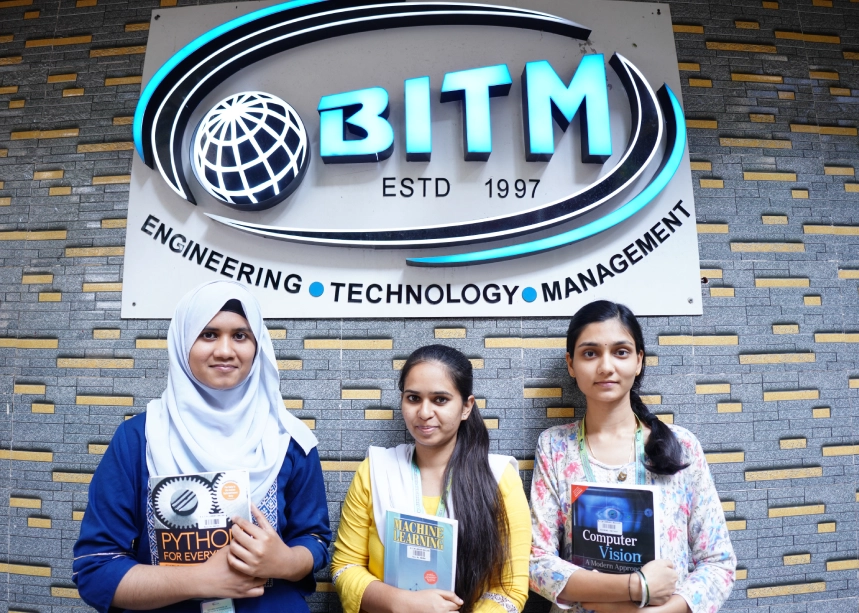
For SC/ST & Other backward classes of Karnataka students only, the minimum marks is 40% in aggregate in the optional subjects in the qualifying examination, irrespective of marks obtained in the Common Entrance Test / COMED-K / AIEEE / any other equivalent entrance examinations. (Eligibility as per the Govt. Norms from time to time).
Programme Educational Objectives (PEOs)
PEO-1
To acquire strong knowledge in Basic Science and mathematics and the ability to apply this knowledge in the relevant fields of E&CE
PEO-2
To develop technical competence and uplift research ability to solve real-time problems.
PEO-3
To obtain professional Excellency through lifelong learning and produce graduates with professional values.
Program outcomes (POs)
PO 1
Engineering knowledge
Apply the knowledge of mathematics, science, engineering fundamentals, and an engineering specialization to the solution of complex engineering problems.
PO 2
Problem analysis
Identify, formulate, review research literature, and analyze complex engineering problems reaching substantiated conclusions using the first principles of mathematics, natural sciences, and engineering sciences.
PO 3
Design/development of solutions
Design solutions for complex engineering problems and design system components or processes that meet the specified needs with appropriate consideration for public health and safety, and cultural, societal, and environmental considerations.
PO 4
Conduct investigations of complex problems
Use research-based knowledge and research methods including design of experiments, analysis and interpretation of data, and synthesis of the information to provide valid conclusions.
PO 5
Modern tool usage
Create, select, and apply appropriate techniques, resources, and modern engineering and IT tools including prediction and modeling to complex engineering activities with an understanding of the limitations.
PO 6
The engineer and society
Apply reasoning informed by the contextual knowledge to assess societal, health, safety, legal & cultural issues and the consequent responsibilities relevant to the professional engineering practice.
PO 7
Environment and sustainability
Understand the impact of professional engineering solutions in societal and environmental contexts, and demonstrate the knowledge of, and need for sustainable development.
PO 8
Ethics
Apply ethical principles and commit to professional ethics & responsibilities and norms of the engineering practice.
PO 9
Individual and team work
Function effectively as an individual, and as a member or leader in diverse teams, and in multi-disciplinary settings.
PO 10
Communication
Communicate effectively on complex engineering activities with the engineering community and with society at large, such as being able to comprehend and write effective reports and design documentation, make effective presentations, and give and receive clear instructions.
PO 11
Project management and finance
Demonstrate knowledge and understanding of the engineering and management principles and apply these to one's work, as a member and leader in a team, to manage projects and in multidisciplinary environments.
PO 12
Life-long learning
Recognize the need for, and have the preparation and ability to engage in independent & life-long learning in the broadest context of technological change.
Programme Specific Outcomes
PSO 1
To understand the principles, processes, techniques, and design aspects of electronic devices, circuits, and communication systems.
PSO 2
To apply, analyze, and design electronic circuits, communication systems, and embedded systems by using higher engineering mathematical foundations, computational principles, and network modeling skills.
PSO 3
To develop electronic hardware and software systems for universal requirements using sensors, embedded controllers, signal processors, and analog and digitally integrated chips.
Program Curriculum 2022 Scheme
| SN | Course Code | Course Name | |
|---|---|---|---|
| 1 | 22MATE11 | Mathematics for EEE Stream-I | |
| 2 | 22PHYE12 | Physics for EEE stream | |
| 3 | 22EEE13 | #Element of Electrical Engineering | |
Or |
|||
| 22BEE13 | ##Basic Electronics | ||
| 4 | 22EDC14X | Engineering Science Course-I | |
| 5 | 22ETC15X | Emerging Technology Course-I | |
Or |
|||
| 22PLC15X | Programming Languages Course-I | ||
| 6 | 22ENG16 | Communicative English | |
| 7 | 22KSK17/22KBK17 | Samskrutika Kannada/ Balake Kannada | |
Or |
|||
| 22ICO17 | Indian Constitution | ||
| 8 | 22IDT18 | Innovation and Design Thinking | |
Or |
|||
| 22SFH18 | Scientific Foundations of Health | ||
(ESC-I) Engineering Science Course-I |
(ETC-I) Emerging Technology Course-I |
||
| Code | Title | Code | Title |
| 22ESC141 | Introduction to Civil Engineering | 22ETC15A | Smart Materials and Systems |
| 22ESC142 | Introduction to Electrical Engineering | 22ETC15B | Green Buildings |
| 22ESC143 | Introduction to Electronics Engineering | 22ETC15E | Renewable Energy Sources |
| 22ESC144 | Introduction to Mechanical Engineering | 22ETC15F | Drone Technology |
| 22ESC145 | Introduction to C Programming | 22ETC15G | Introduction to Sustainable Engineering |
| 22ETC15H | Introduction to Internet of Things (IoT) | ||
| 22ETC15I | Waste Management | ||
| 22ETC15J | Introduction to Cyber Security | ||
(PLC-I) Programming Language Courses-I |
|||
| Code | Title | ||
| 22PLC15A | Introduction to Web Programming | ||
| 22PLC15B | Introduction to Python Programming | ||
| 22PLC15C | Basics of JAVA Programming | ||
| 22PLC15D | Introduction to C++ Programming | ||
| SN | Course Code | Course Name | |
|---|---|---|---|
| 1 | 22MATE21 | Mathematics for EES-II | |
| 2 | 22CHEE22 | Chemistry for EES | |
| 3 | 22CED23 | Computer-Aided Engineering Drawing | |
| 4 | 22ESC24X | Engineering Science Course-II | |
| 5 | 22PLC25X | Programming Languages Course-II | |
Or |
|||
| 22ETC25X | Emerging Technology Course-II | ||
| 6 | 22PWS26 | Professional Writing Skills in English | |
| 7 | 22ICO27 | Indian Constitution | |
Or |
|||
| 22KSK27/22KBK27 | Samskrutika Kannada/ Balake Kannada | ||
| 8 | 22FH28 | Scientific Foundations of Health | |
Or |
|||
| 22IDT28 | Innovation and Design Thinking | ||
(ESC-II) Engineering Science Course-II |
(ETC-II) Emerging Technology Course-II |
||
Code |
Title |
Code |
Title |
| 22ESC241 | Introduction to Civil Engineering | 22ETC25A | Smart Materials and Systems |
| 22ESC242 | Introduction to Electrical Engineering | 22ETC25B | Green Buildings |
| 22ESC243 | Introduction to Electronics Engineering | 22ETC25E | Renewable Energy Sources |
| 22ESC244 | Introduction to Mechanical Engineering | 22ETC25F | Drone Technology |
| 22ESC245 | Introduction to C Programming | 22ETC25G | Introduction to Sustainable Engineering |
| 22ETC25H | Introduction to Internet of Things (IoT) | ||
| 22ETC25I | Waste Management | ||
| 22ETC25J | Introduction to Cyber Security | ||
(PLC-II) Programming Language Courses-II |
|||
Code |
Code |
||
| 22PLC25A | Introduction to Web Programming | ||
| 22PLC25B | Introduction to Python Programming | ||
| 22PLC25C | Basics of JAVA Programming | ||
| 22PLC25D | Introduction to C++ Programming | ||
| SN | Course Code | Course Name |
|---|---|---|
| 1 | 22BB31 | Biology for Engineers |
| 2 | 22EC32 | Digital Circuit Design using Verilog |
| 3 | 22EC33 | Network Analysis |
| 4 | 22EC34 | Analog Electronic Circuits |
| 5 | 22ECL35 | Analog Electronic Circuits Laboratory |
| 6 | 22EC361 | ESC/ETC/PLC (Computer Organization and Architecture) |
| 7 | 22SC37 | Social Connect and Responsibility |
| 8 | 22EC381 | Ability Enhancement Course/Skill Enhancement Course – III Department specific ability enhancement course (Programming with Hardware Controllers) |
| 9 | 22NS39 | National Service Scheme (NSS) |
| 22PE39 | Physical Education (PE) (Sports and Athletics) | |
| 22YO39 | Yoga | |
Additional Mathematics for Lateral Entry Students |
||
| 1 | 22MATDIP31 | Additional Mathematics-I |
| SN | Course Code | Course Name |
|---|---|---|
| 1 | 22MEE41 | Applied Mathematics for Electrical and Electronics Engineering |
| 2 | 22EC42 | Engineering Electromagnetics |
| 3 | 22EC43 | Control Systems |
| 4 | 22EC44 | Communication Systems- I |
| 5 | 22ECL45 | Communication Laboratory-I |
| 6 | 22EC46x | ESC/ETC/PLC |
| 7 | 22PSW47 | Ability Enhancement Course / Skill Enhancement Course – IV (Professional Skills for the Work Place) |
| 8 | 22UH48 | Universal human values course |
| 9 | 22NS49 | National Service Scheme (NSS) |
| 22PE49 | Physical Education (PE) (Sports and Athletics) | |
| 22YO49 | Yoga | |
Additional Mathematics for Lateral Entry Students |
||
| 1 | 22MATDIP41 | Additional Mathematics-II |
Engineering Science Course (ESC/ETC/PLC) |
||
| 1 | 22EC461 | 8051 Microcontroller |
| 2 | 22EC462 | Oops using C++ |
| SN | Course Code | Course Name |
|---|---|---|
| 1 | 22EC51 | Principles of Management & Economics |
| 2 | 22EC52 | Fundamentals of VLSI Design |
| 3 | 22EC53 | Communication Systems- II |
| 4 | 22ECL54 | Communication Laboratory-II |
| 5 | 22EC55X | Professional Elective Course |
| 6 | 22ECMN56 | Mini Project |
| 7 | 22ADA57 | Ability Enhancement Course/Skill Development Course - V (Advanced aptitude) |
| 8 | 22ES58 | Environmental Studies |
| 9 | 22NS59 | National Service Scheme (NSS) |
| 22PE59 | Physical Education (PE) (Sports and Athletics) | |
| 22YO59 | Yoga | |
Professional Elective Course |
||
| 1 | 22EC551 | Embedded Systems & Applications |
| 2 | 22EC552 | Sensors and actuators for Engineering Applications |
| 3 | 22EC553 | Theory of Algorithms |
| 4 | 22EC554 | Quantum Computing |
| 5 | 22EC555 | Introduction to AI |
| SN | Course Code | Course Name |
|---|---|---|
| 1 | 22EC61 | Digital Signal Processing |
| 2 | 22EC62 | Microwaves and Antennas |
| 3 | 22EC63X | Professional Elective Course |
| 4 | 22EC64X | Open Elective Course |
| 5 | 22ECP65 | Project Phase I |
| 6 | 22ECL66 | Microwaves and Antennas Lab |
| 7 | 22RM67 | Research Methodology and IPR |
| 9 | 22NS69 | National Service Scheme (NSS) |
| 22PE69 | Physical Education (PE) (Sports and Athletics) | |
| 22YO69 | Yoga | |
Professional Elective Course |
||
| 1 | 22EC631 | Principles of AR VR Technologies |
| 2 | 22EC632 | Machine Learning with Python |
| 3 | 22EC633 | System Verilog and Verification |
| 4 | 22EC634 | Computer Vision |
| 5 | 22EC635 | Fundamentals of Robotics and Applications |
| 6 | 22EC636 | Satellite Communication |
Open Elective Course |
||
| 1 | 22EC641 | Internet of Things |
| 2 | 22EC642 | Embedded System Design |
| 3 | 22EC643 | Fundamentals of CMOS VLSI Technology |
| 4 | 22EC644 | Principles of Analog and Digital Communication |
| 5 | 22EC645 | High Performance Computing |
Faculty
Admission to Higher Semester:
- After the announcement of the reopening date of the college, the candidates have to register for the admission with an application enclosing all the photos copies of previous semesters marks card/s through their department HOD and they have to pay the applicable Tuition Fees / Registration Fees within a week of reopening the institute for class work.
- The students who fail to register within the first week of re-opening, the student will be charged a penalty
- The names of the students will be deleted, in case they fail to register as per the schedule
- Any financial matters are required to be referred to the principal only
- Once the student is admitted he/she will be under the guidance of the department and all the academic matters should be addressed through the Head of the department only.
- Students are expected to maintain discipline in the college campus & not to indulge in “Ragging Activities”.
FAQs
Electronics and Communication Engineering is a branch of engineering that deals with the design, development, and application of electronic devices, circuits, communication systems, and networks. It covers digital electronics, communication systems, signal processing, embedded systems, microprocessors, and VLSI (Very Large Scale Integration).
The major areas of study in ECE include:
- Analog and Digital Electronics
- Communication Systems (Wireless, Optical, Satellite, Mobile Networks)
- Signal Processing (Image, Audio, Video)
- Embedded Systems and Microcontrollers
- VLSI Design
- Control System
- Power Electronics
- Electromagnetic Theory
- RF and Microwave Engineering
- Internet of Things (IoT)
- Robotics and Automation
The ECE department typically offers BE in Electronics and Communication Engineering
Some essential skills for students pursuing ECE are:
- Strong foundation in mathematics, physics, and computer science
- Problem-solving and analytical thinking
- Knowledge of circuit design and simulation tools
- Familiarity with programming languages like C, C++, Python, or MATLAB
- Understanding of communication protocols and networking
- Hands-on experience with hardware ( Microcontrollers, sensors, etc.)
- Teamwork and communication skills for collaborative projects
ECE graduates have a wide range of career opportunities in various industries, including:
1. Core Electronics and Communication Roles
- Embedded Systems Engineer: Work on embedded systems and microcontrollers, often in industries like automotive, aerospace, and IoT.
- VLSI Design Engineer: Design complex integrated circuits and chip design, often in semiconductor companies.
- RF Engineer: Specialize in radio frequency engineering, essential for wireless communications, satellite systems, and telecommunications.
- Telecommunication Engineer: Focus on network design, maintenance, and improvement of telecommunication systems, including cellular networks.
- Network Engineer: Maintain and optimize network infrastructure for businesses, often in ISPs or IT companies.
- Signal Processing Engineer: Work with signal processing algorithms and applications in fields like audio processing, image processing, and communications.
2. Software and IT Roles
- Software Developer/Engineer: Develop software applications, with a focus on software engineering, coding, and debugging.
- Data Scientist/Analyst: Analyze and interpret complex data; ECE students often have good problem-solving skills for data science roles.
- Machine Learning Engineer: Design and implement machine learning algorithms, using programming and analytical skills.
- Cybersecurity Analyst: Work on protecting systems and networks from cyber threats, an area of growing importance.
3. Control Systems and Automation
- Control Systems Engineer: Work on automation in manufacturing, robotics, and industrial processes.
- Instrumentation Engineer: Focus on designing and maintaining control instruments in industries such as oil, gas, and power.
4. Research and Development (R&D)
- Research Engineer: Engage in research activities, especially in innovative areas like quantum computing, communication systems, and AI.
- R&D Scientist: Work with research labs or academia on advanced technologies, publishing research and developing new technologies.
5. Sales and Consulting Roles
- Technical Sales Engineer: Serve as a bridge between customers and technical teams, especially for high-tech products.
- Consultant: Provide consultancy in technology, helping companies leverage new advancements in electronics and communications.
6. Government and Public Sector Jobs
- Public Sector Jobs (PSUs): Many government-owned companies (like BHEL, ISRO, DRDO, BSNL) hire ECE graduates.
- Defense Services: Roles in technical arms of the defense sector, including electronics, communications, and radar systems.
7. Higher Studies and Academia
- Higher Education (M.Tech/PhD): Pursue advanced studies and specialize in a particular area, opening doors to teaching and high-level R&D roles.
- Professor/Lecturer: A teaching career in universities or colleges, guiding the next generation of engineers.
8. Entrepreneurship
- Startups and Innovation: Leverage skills to start a business, particularly in technology-driven areas like IoT, AI, or hardware startups.
ECE graduates have opportunities across multiple sectors, making it a versatile degree.
Some of the current trends in ECE include:
- Internet of Things (IoT)
- Artificial Intelligence and Machine Learning in Electronics
- 5G and 6G Communication Networks
- Quantum Computing and Communication
- Autonomous Vehicles and Smart Transportation
- Edge Computing and Cloud Computing
- Wearable Technology and Health Monitoring
- Smart Cities and Smart Grid Technologies
The ECE department typically conducts research in the following areas:
- Signal Processing (audio, video, speech recognition)
- Wireless Communication (5G, IoT, satellite systems)
- Embedded Systems (IoT devices, real-time systems)
- VLSI Design and Fabrication
- Microwave and RF Engineering
- Machine Learning in Electronics
- Biomedical Electronics
The ECE department typically provides the following lab facilities:
- Circuit Theory and Electronics Lab
- Communication Systems Lab
- Microprocessor and Microcontroller Lab
- Signal Processing Lab
- Embedded Systems and IoT Lab
- VLSI Design Lab
- Digital Logic Design Lab
- Antenna and RF Lab
- Optical Fiber Communication Lab
- Robotics and Automation Lab
Yes, ECE students have, access to internship opportunities with leading tech companies, telecom firms, and research organizations. The department also has strong industry connections for campus placements. Placement opportunities include roles in software development, electronics design, network engineering, research and development, and more.
The ECE department fosters student development through:
- Industry Visits and Collaborations
- Workshops, Seminars, and Guest Lectures
- Research Projects and Thesis Work
- Technical Competitions and Hackathons
- Internships and Industrial Training
- Student Clubs and Technical Fests
ECE students are encouraged to participate in:
- Technical Events and Conferences
- Online Courses and Certifications
- Student Clubs and Tech Meetups
- Research Journals and Industry Publications
- Workshops on Emerging Technologies







